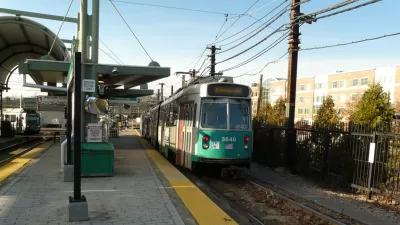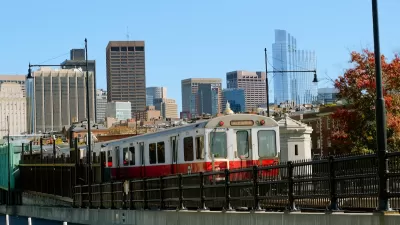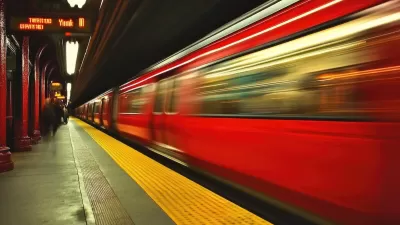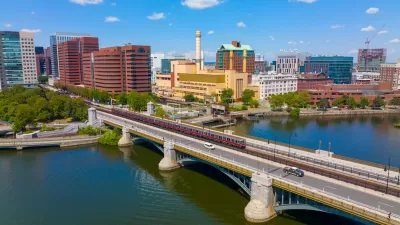As part of the city's long-term Go Boston 2030 plan, residents were consulted about what improvements they would like to see. Answers included an end to fatal crashes and better-integrated, more frequent transit.

Boston is making an effort to include the opinions of a broad range of citizens in its long-range transportation planning, according to an article by Nicole Dungca. The effort involved sending "a van to different areas of the city and held several events to gather feedback on transportation; more than 6,000 residents responded. Officials then boiled down the comments to formulate respondents' most important transportation goals."
"Boston residents want the city to eliminate fatal traffic crashes, make sure every household is within a 10-minute walk of public transportation, and ensure that MBTA trains and buses arrive on time at least 90 percent of the time," writes Dungca. Additional requests included a lower default speed limit as well as train stations with adjacent bus, shuttle, and bikeshare service.
Overall, Bostonians appear eager for major transit investment, some of which would require support from state agencies. "The plan also suggests relatively inexpensive improvements, such as repainting streets and placing planters to mark bike lanes on the street. Doing so can help slow drivers in corridors and intersections known for traffic accidents."
FULL STORY: Report lays out Boston’s transit wish list

Trump Administration Could Effectively End Housing Voucher Program
Federal officials are eyeing major cuts to the Section 8 program that helps millions of low-income households pay rent.

Planetizen Federal Action Tracker
A weekly monitor of how Trump’s orders and actions are impacting planners and planning in America.

Ken Jennings Launches Transit Web Series
The Jeopardy champ wants you to ride public transit.

Milwaukee Road to Get Complete Streets Upgrades
The city will reduce vehicle lanes and build a protected multi-use trail including bioswales and other water retention features on its ‘secret highway.’

Tackling Soil Contamination With Nature-Based Solutions
Los Angeles County residents and experts are turning to nature-based methods like bioremediation to address long-standing and fire-exacerbated soil contamination without resorting to costly and disruptive removal.

Rebuilding Smarter: How LA County Is Guiding Fire-Ravaged Communities Toward Resilience
Los Angeles County is leading a coordinated effort to help fire-impacted communities rebuild with resilience by providing recovery resources, promoting fire-wise design, and aligning reconstruction with broader sustainability and climate goals.
Urban Design for Planners 1: Software Tools
This six-course series explores essential urban design concepts using open source software and equips planners with the tools they need to participate fully in the urban design process.
Planning for Universal Design
Learn the tools for implementing Universal Design in planning regulations.
Ada County Highway District
Clanton & Associates, Inc.
Jessamine County Fiscal Court
Institute for Housing and Urban Development Studies (IHS)
City of Grandview
Harvard GSD Executive Education
Toledo-Lucas County Plan Commissions
Salt Lake City
NYU Wagner Graduate School of Public Service





























